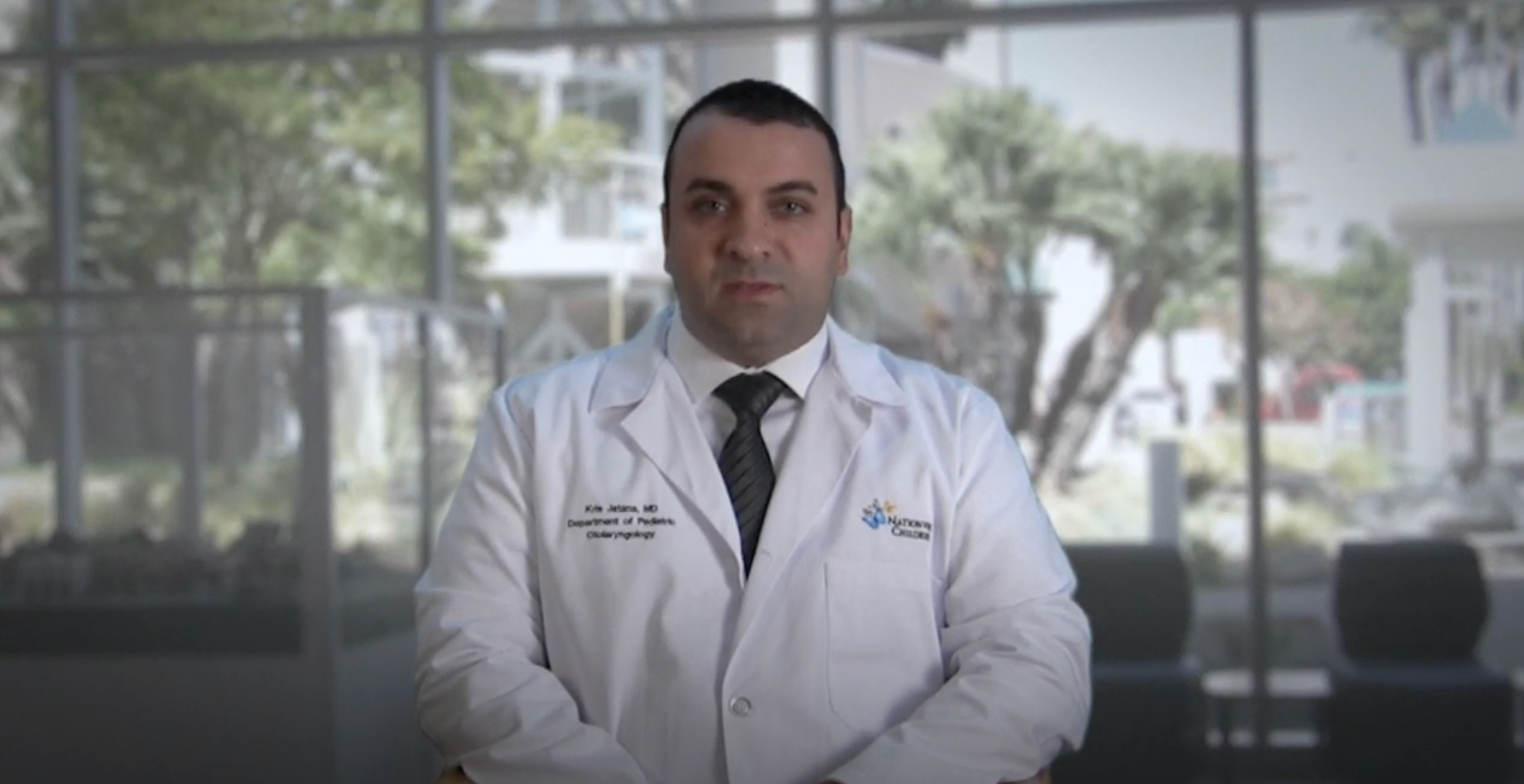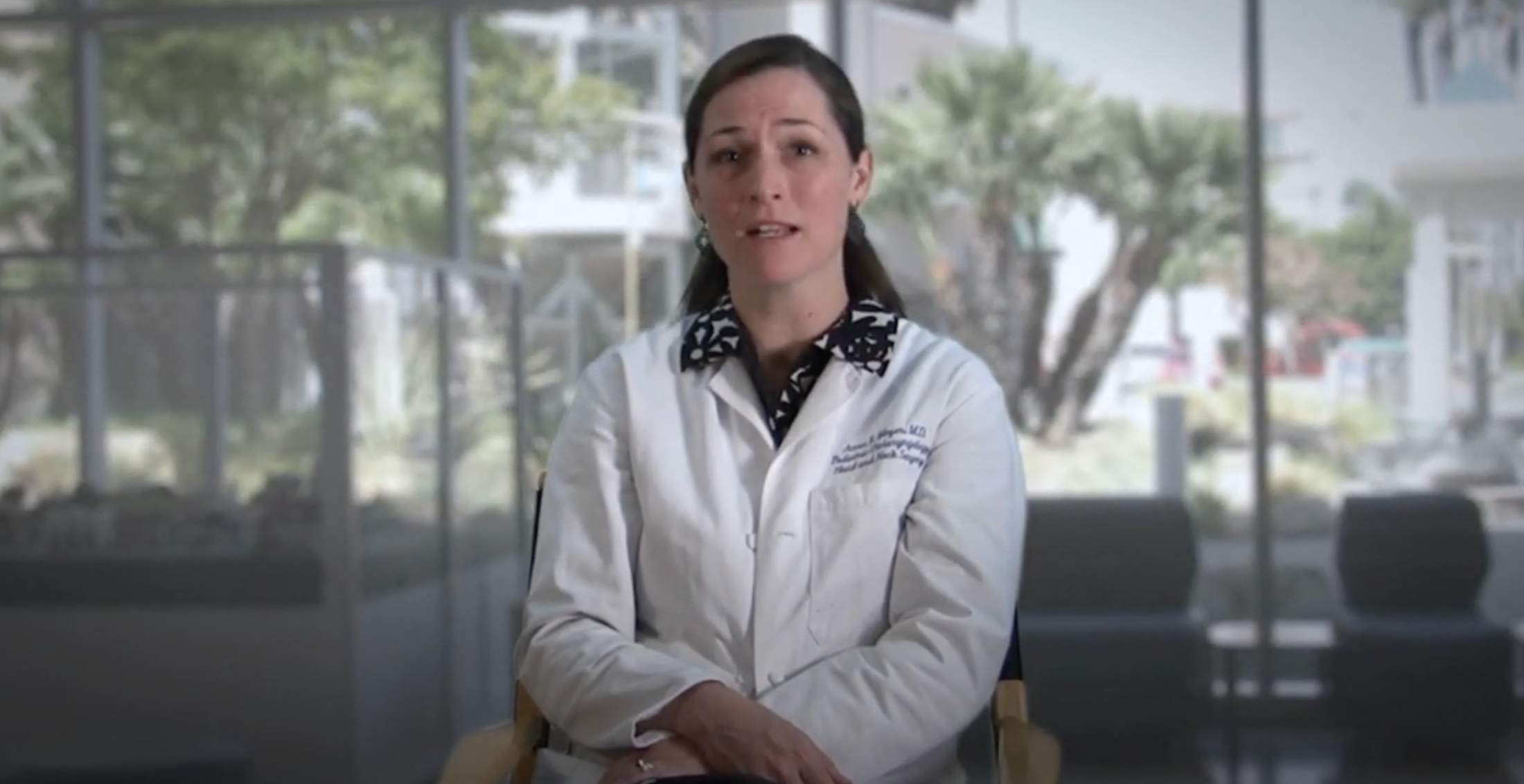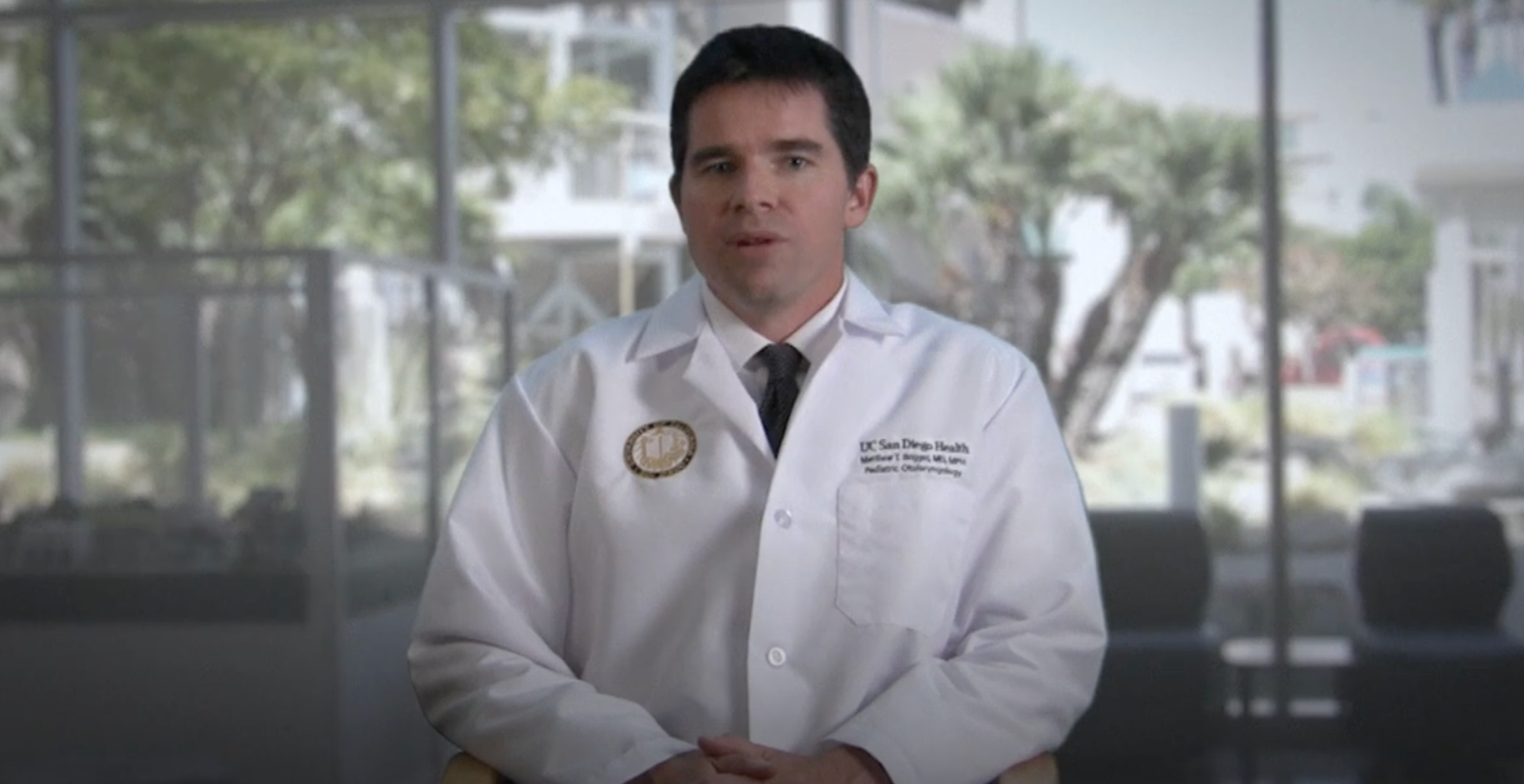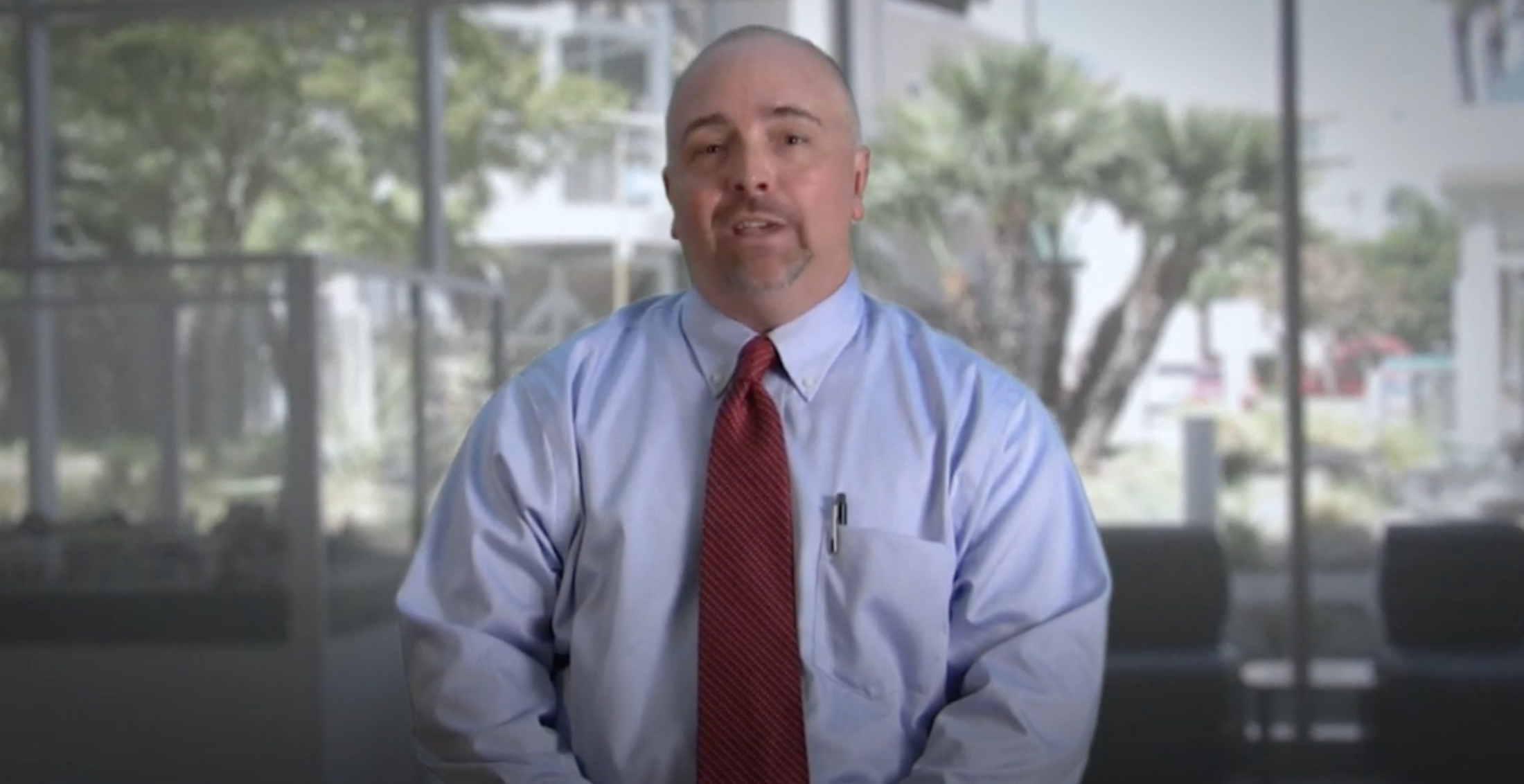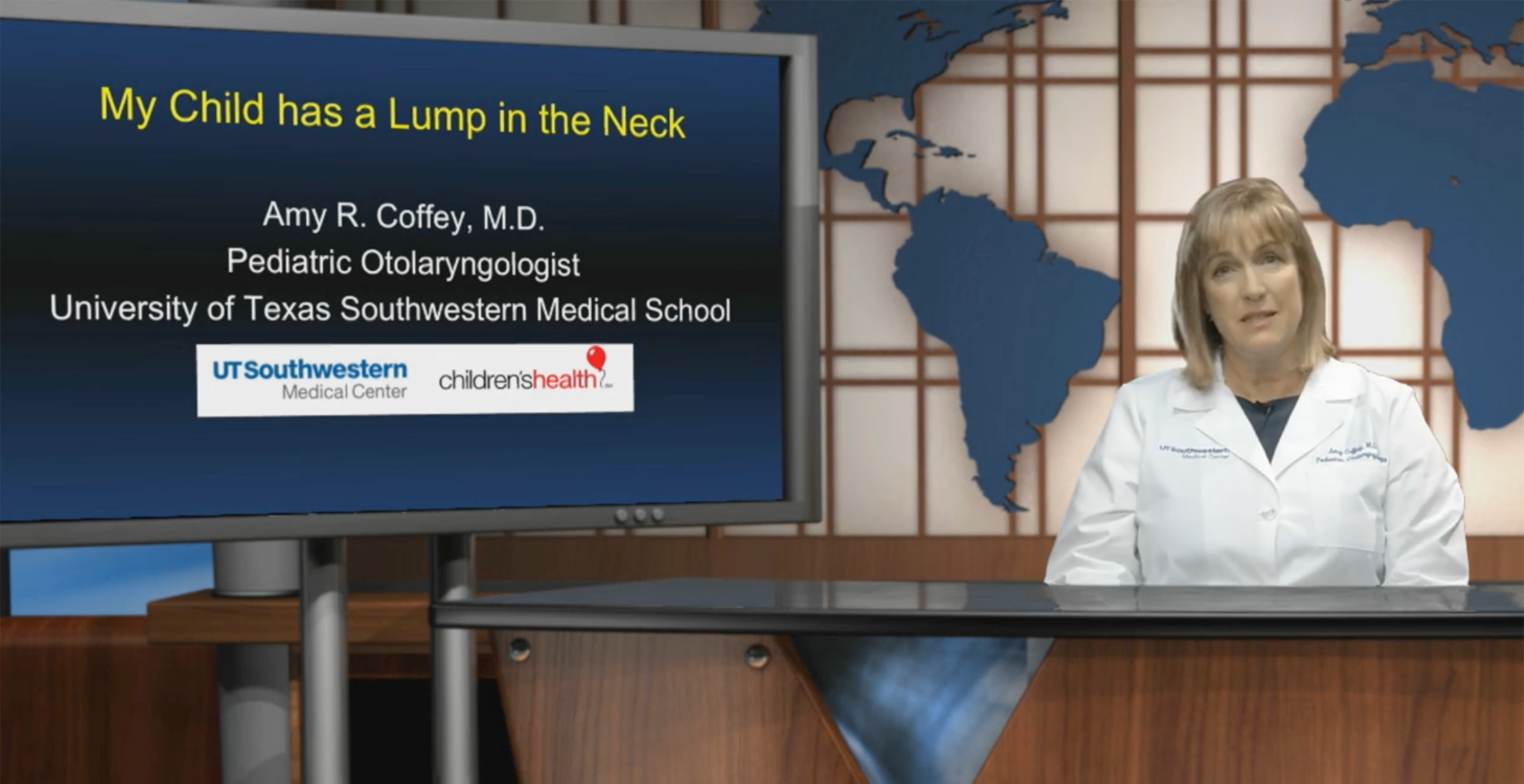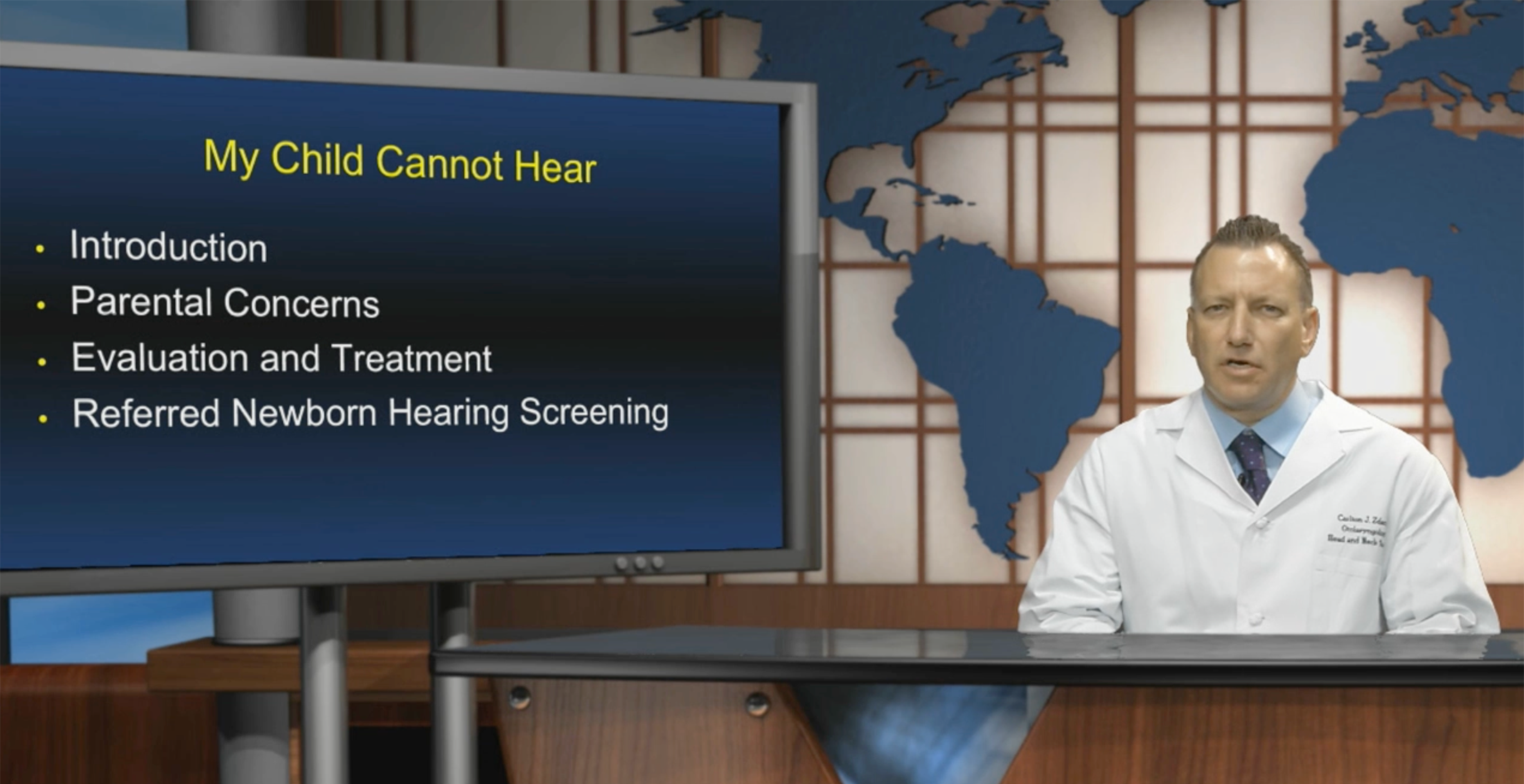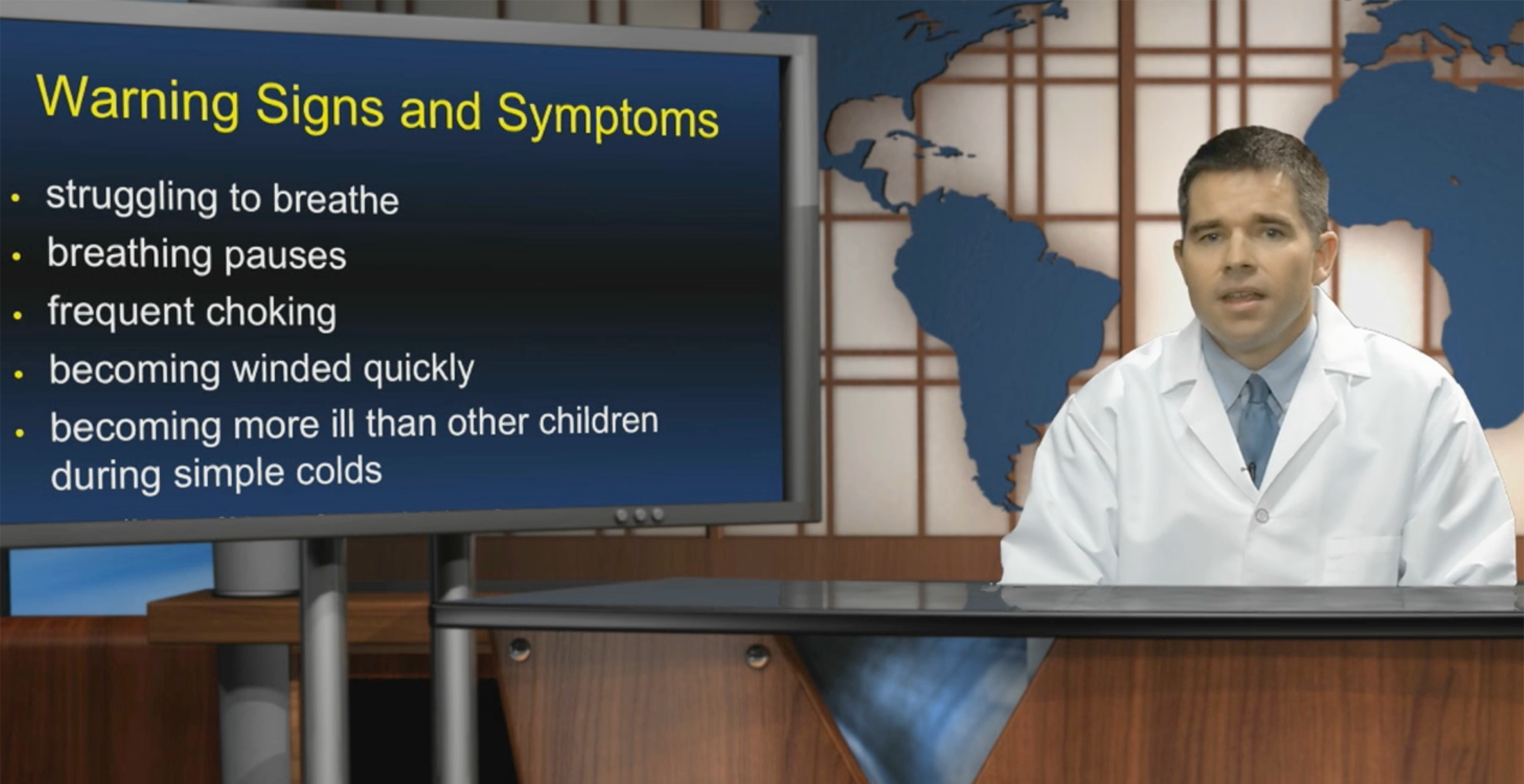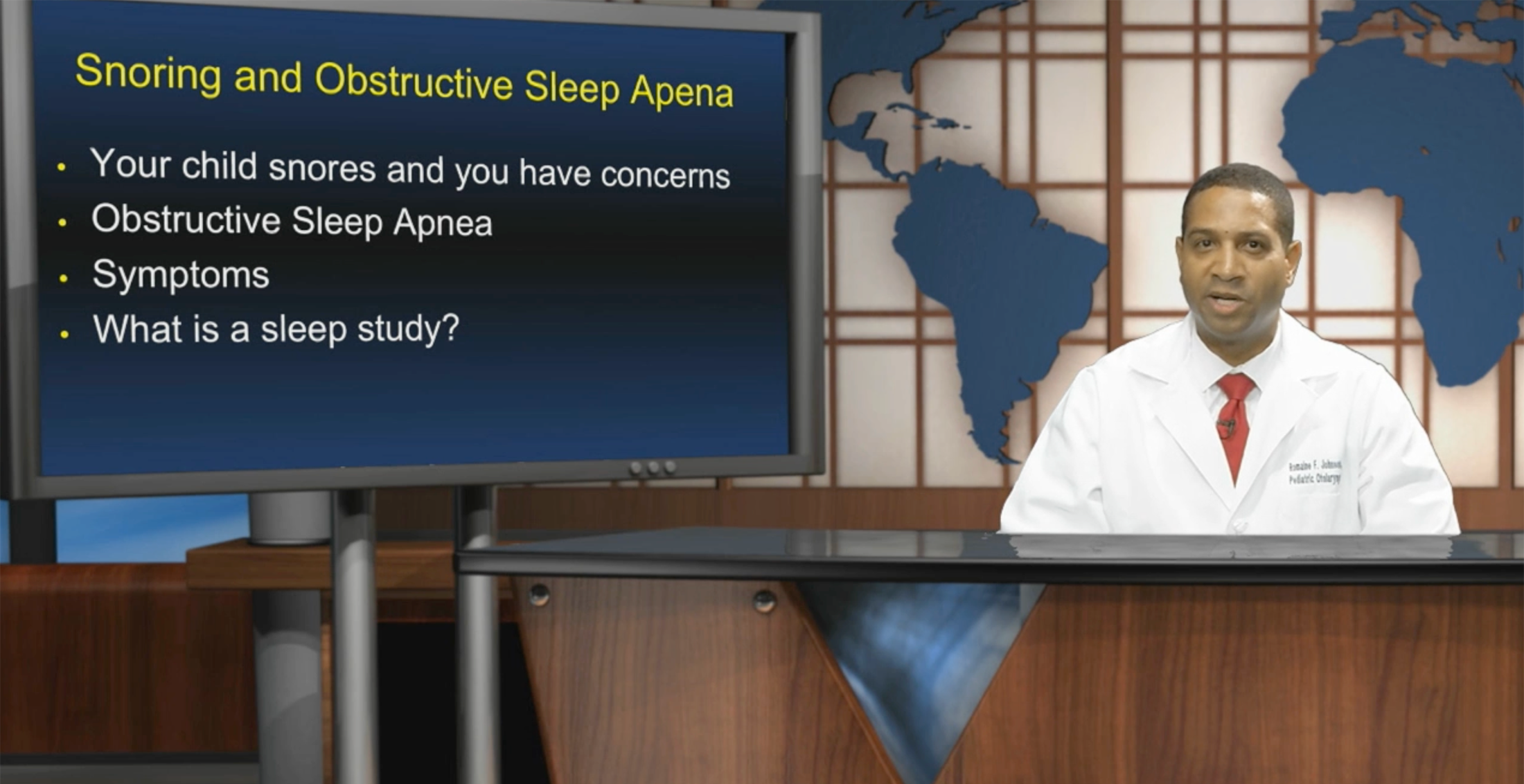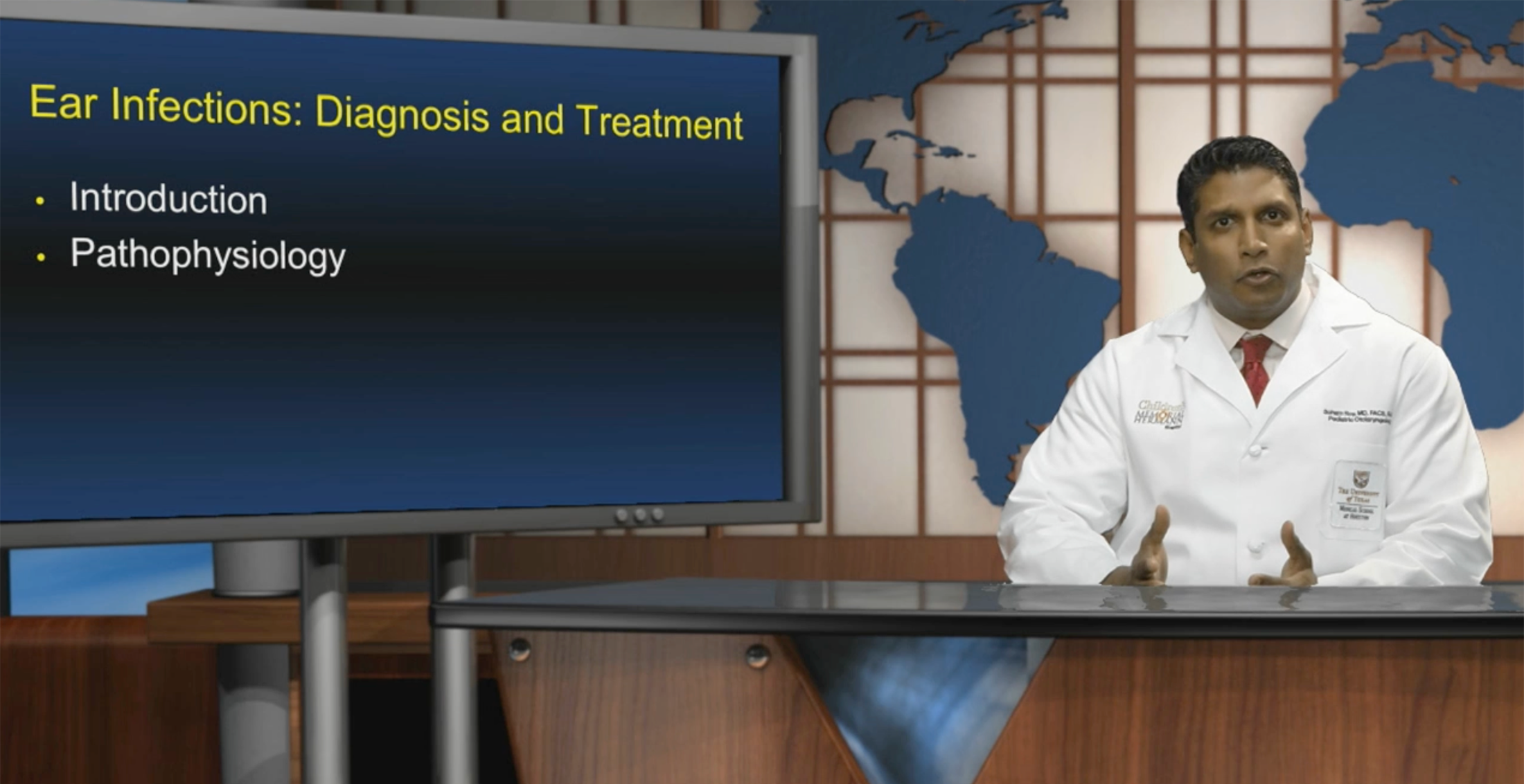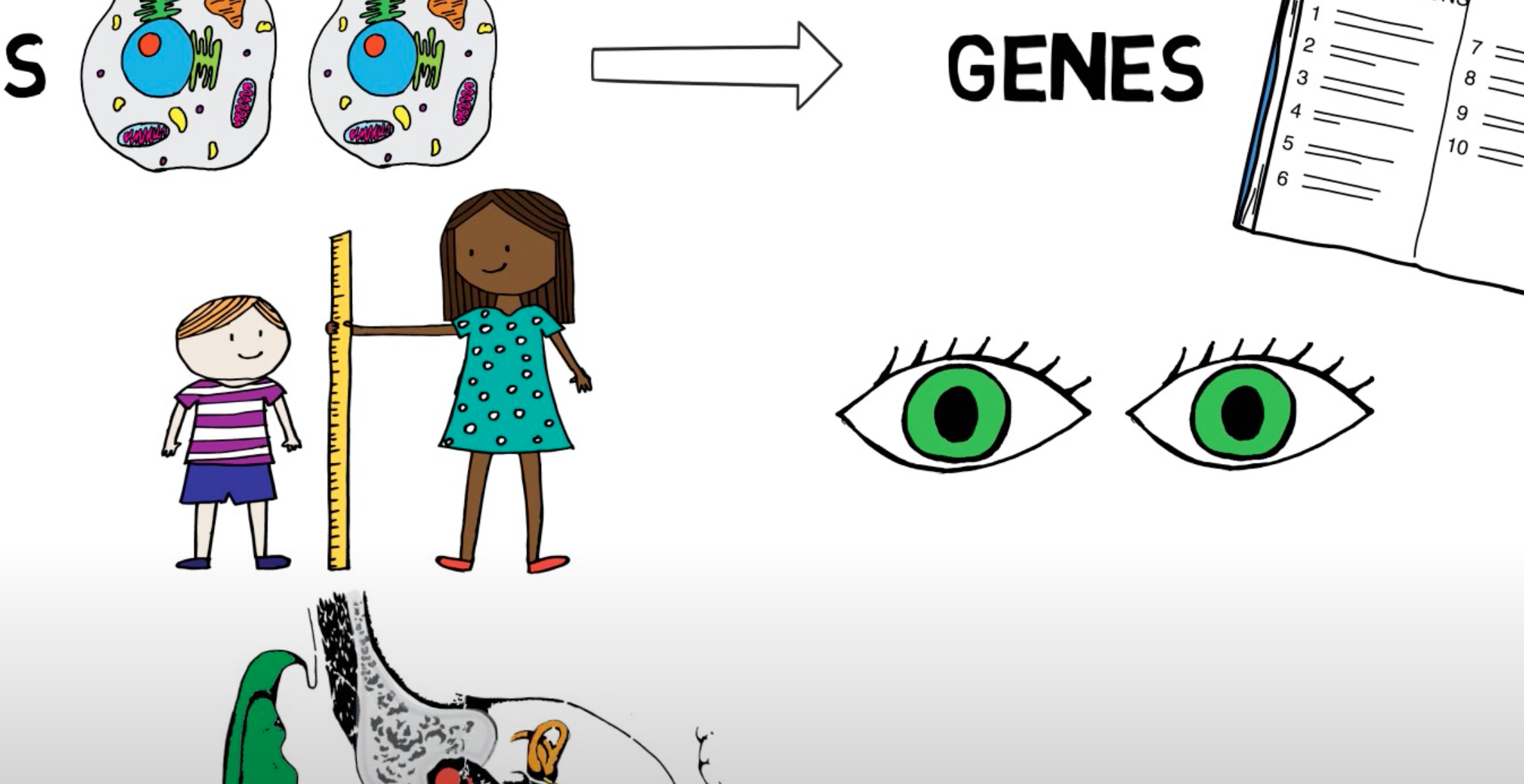Educational Videos for ParentsA child's curiosity can be dangerous. More than 3,000 button battery ingestions are reported yearly in the US. Button batteries are the small round batteries found in small electronics, such as remote controls, toys, flameless candles, bathroom scales, and digital thermometers.
In this video, Kris R. Jatana, MD, FAAP, Associate Professor in the Department of Otolaryngology-Head & Neck Surgery at Ohio State University & Nationwide Children's Hospital, explains the signs and symptoms of button battery ingestion, including when one is lodged in the ear canal or nose. If you ever suspect your child swallowed a button battery, go immediately to an emergency room. Serious damage can occur in as little as 2 hours. Choking Hazards, Parents of Young Children Should Know About
In this video, Philip Geadreau, MD, Assistant Professor of Pediatric Otolaryngology at Uniformed Services University of the Health Sciences—Naval Medical Center San Diego, identifies the risk factors and common items associated with choking. He also explains what parents should do in a choking emergency. Remember, the most important step you can take is to prevent choking in the first place. Tongue-Tie in Infants & Young ChildrenUp to 10% of the population has some form of tongue-tie (ankyloglossia, tight frenulum). In this video, Anna K. Meyer, MD, Associate Professor of Pediatric Otolaryngology at the University of California in San Francisco, explains why it is important to talk with your doctor if your child's feeding, speech development, or oral health are compromised due to tongue-tie. Your doctor may refer you to a pediatric dentist, pediatric otolaryngologist, or pediatric plastic surgeon for further evaluation. Surgery (frenotomy or frenuloplasty) should be considered if the tongue-tie appears to restrict tongue movement, such as inability to latch on with breastfeeding. It is a is a simple, safe, and effective procedure—general anesthesia is not required. Why Does My Child Have a Chronic Cough?
In this video, Matthew T. Brigger, MD, MPH, a pediatric otolaryngologist at Rady Children's Hospital San Diego, explains the many different causes for a persistent or chronic cough in children. Ultimately, your pediatrician is your best source for evaluation and can refer you to a pediatric specialist if needed. Reasons Why Your Child Has a Runny Nose
The clear drainage everyone has in their nose actually serves an important purpose, and a small amount is normal. Too much, however, can clog the nose and lead to infection. Viruses can cause the mucus to be green or yellow. In this video, William Collins, MD, FACS, FAAP, Chief of the Division of Pediatric Otolaryngology at the University of Florida, explains the anatomy of the nose, the many reasons a child will have runny nose, and when to see your doctor. Dr. Collins also discusses nasal injuries and the signs your child may have put something in his or her nose. What to Do If You Discover a Lump on Your Child's Neck
In this video, Amy R. Coffey, MD, FAAP, Assistant Professor of Pediatric Otolaryngology at the University of Texas Southwestern Medical School, explains why swollen glands and other neck lumps can be caused by many different things, including illness, infection, or injury. She also review the various signs, symptoms, and treatment options. Could My Child Have a Hearing Problem?
Noisy Breathing in Children
In this video, Matthew T. Brigger, MD, MPH, a pediatric otolaryngologist at Rady Children's Hospital San Diego, explains the symptoms of noisy breathing and why it generally warrants evaluation by your child's pediatrician. Does Your Child Snore?
Treating Ear Infections in Children
Is your child's hearing loss genetic?CS Mott Children's Hospital, University of Michigan MedicineThe following educational video outlines why genetics is important for children with hearing loss, as well as some of the key reasons children develop hearing loss. |


